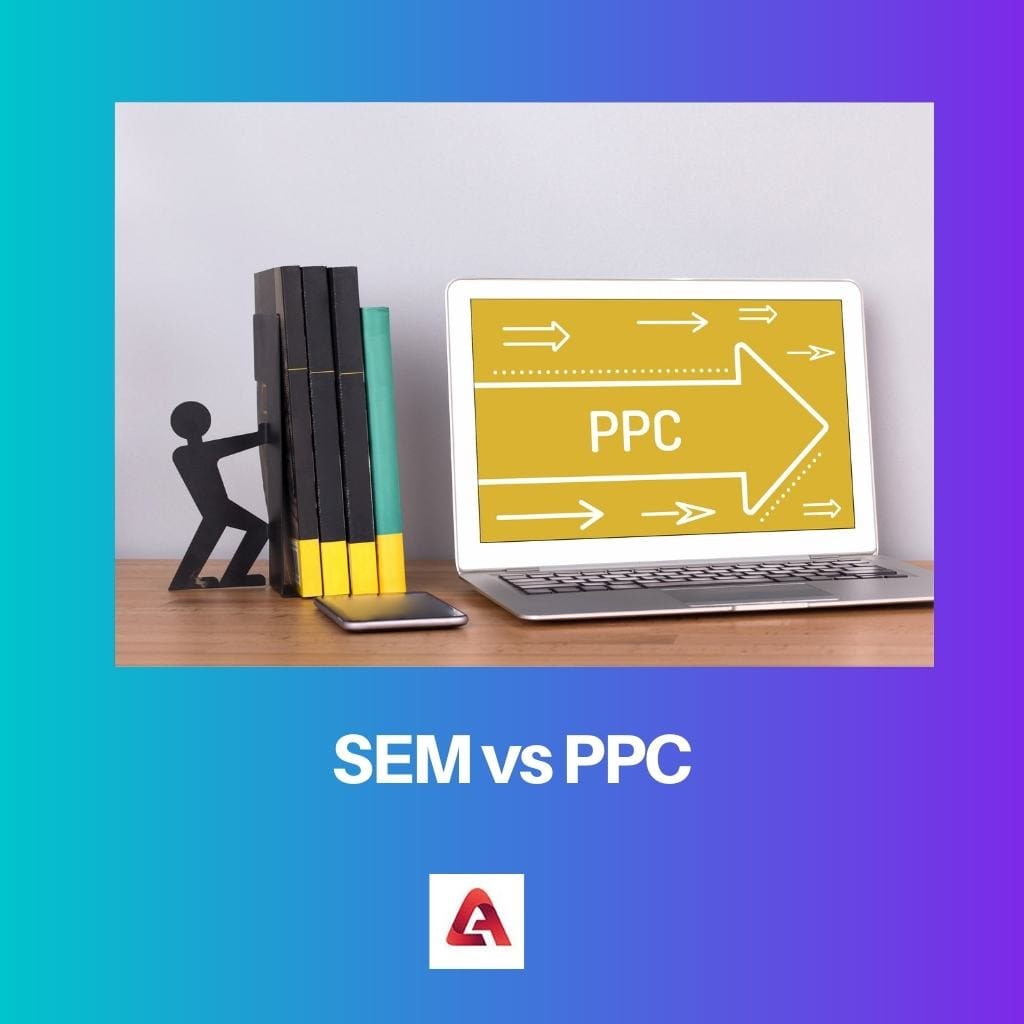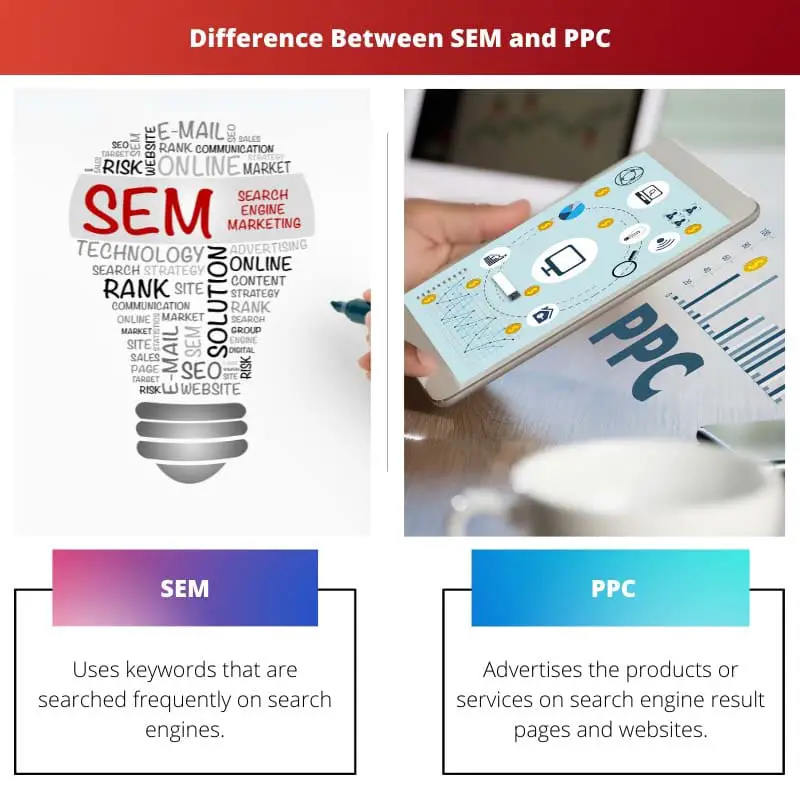In today’s world, if one has to grow his business with time, he must stay updated with the changing trends and follow them as required. This digital age has made it essential for businesses to have an online presence to avoid the growing competition in the market.
As online is a huge platform, it is a great opportunity for any product/service seller to flourish. Moreover, it is a very convenient way to attract more potential customers to the products/services.
Search Engine Marketing (SEM) and Pay Per Click (PPC) are two extremely important forms of online marketing that ensure the visibility of any website or business in the search engine result pages or SERPs(e.g., Google, Yahoo, Bing, etc.), which helps to draw more attention of people and hence more potential customers to the websites of the businesses.
Key Takeaways
- SEM and PPC are two terms used in the digital marketing industry to refer to paid advertising campaigns that increase website traffic and drive conversions.
- SEM encompasses a broader range of marketing tactics, including SEO, PPC, and other paid advertising methods, while PPC specifically refers to paid advertising on search engines.
- SEM is a comprehensive approach to digital marketing, whereas PPC is a specific subset of SEM that focuses on paid search advertising.
SEM vs PPC
SEM (Search Engine Marketing) refers to numerous tactics for enhancing a website’s exposure in search engine results. PPC (Pay-Per-Click) is a subset of SEM in which advertisers pay each time a user clicks on their adverts; it is a type of paid advertising found in SEM.

The advertisements are displayed on SERPs and other websites, and the advertiser has to pay a certain amount of money for every click on the ad.
Comparison Table
| Parameters of Comparison | SEM | PPC |
|---|---|---|
| Method | Uses keywords that are frequently searched on search engines. | Advertises the products or services on search engine result pages and websites. |
| Difficulty | Requires a lot of research on keywords. | Relatively easier than SEM to gain traffic. |
| Display of the result | Improves the ranking of a website on SERPs. | Makes products/services visible on SERPs through ads. |
| Time | Takes a longer time to show the results. | Shows results quicker as compared to SEM. |
| Impression | Brings long-lasting organic traffic. | It brings traffic until the ads are being run. |
| Cost | Less costly than PPC. | Costlier when compared to SEM. |
What is SEM?
SEM stands for Search Engine Marketing. It is one of the important tools of online digital marketing that increases the chances of a website being found by more people.
With the help of SEM, a website can rank higher on Search Engine Result Pages or SERPs. One has to be up-to-date with the change in algorithms of the different search engines and the popularity of keywords to craft good content with a strong SEM strategy.
SEM mainly uses the Search Engine Optimization tool, which adjusts the content of websites using relevant keywords so that if someone searches for that keyword on a search engine, they can easily find the website.
There are various platforms where the popularity of a keyword or key phrase can be tracked. For example, Google Keyword Planner, Moz Keyphrase Explorer, etc.
SEM is a cost-effective tool to gain organic traffic, but it requires much research. It can poorly affect search engine results if not done properly.

What is PPC?
PPC stands for Pay Per Click, also known as CPC or Cost Per Click. Again, this is an important digital marketing tool used to draw more customers to a website.
PPC is an advertising model which runs ads on SERPs and websites. Here, the advertiser has to pay a certain amount of money each time someone clicks on their ad and goes to their website.
So, PPC is a way of buying customer visits to the website rather than earning them organically. The most well-known ad platform is Google Ads. Bing Ads and Yahoo Search Ads are quite popular as well.
The amount that has to be paid by the marketer or the advertiser to the host websites or SERPs depends on various factors. For example, the popularity of the advertised keyword, the ad’s quality, bidding, etc.
The highest bidder for PPC gets ranked at the top of the search engine listing.
Most of the time, PPC requires a good amount of money to display the ads to gain more visibility and impressions. Hence, it may not be a very appropriate or convenient way for small budgeters.
There is a possibility that the newbies first go for SEM to gain traffic and gradually include PPC in their marketing strategy.

Main Differences Between SEM and PPC
- SEM is an organic marketing strategy, whereas PPC is a paid one. Hence, SEM brings traffic to the website naturally, while PPC is a method where a business owner needs to pay and boost the visibility of their business online.
- SEM incorporates optimization tools(e.g., SEO) which modify the website’s architecture, whereas PPC is an advertising model.
- PPC is a much easier and quicker way to draw potential customers than SEM.
- SEM can bring long-lasting organic traffic to the website, while through PPC, one can build traffic on their website till the ad runs.
- SEM makes a website rank higher on search engines so that it is easily visible to the customers, while PPC makes a service provider or website visible via ads.





